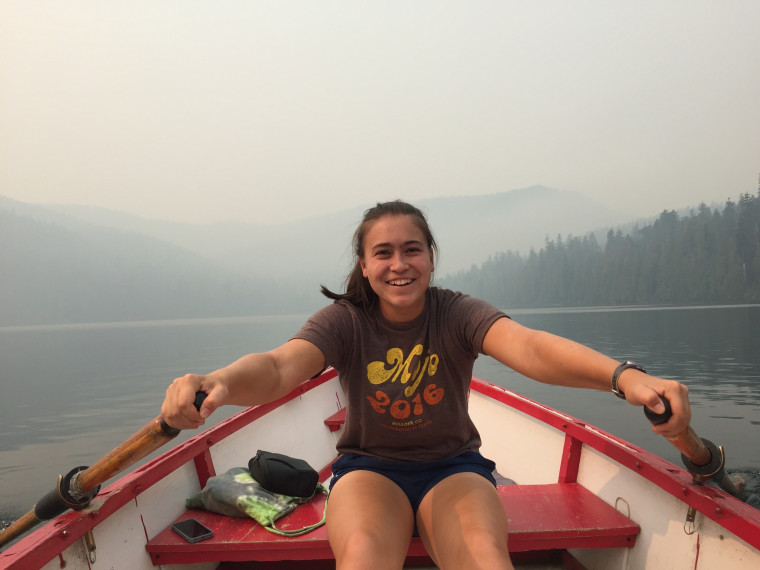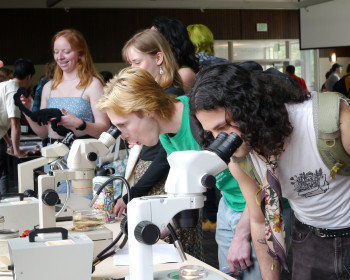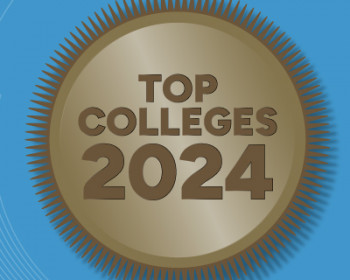Glenna Gee-Taylor
I felt that my opinion, my analysis, and my thoughts, were interesting to my professors and classmates. I got to talk with professors and classmates without hierarchy or fear.

Pronouns
Degree and Class Year
Current City
Major
Extracurriculars
Job Title, Organization
Continuing Studies
What three words would you use to describe L&C?
What made you want to come to Lewis & Clark?
My brother was a junior at Lewis and Clark when I was applying to college, so I
had already visited many times and fallen in love with the campus. I wanted to
play tennis but getting a good education was equally important to me. I wanted to
be in a new place to explore and I wanted to have access to a city. Lewis and
Clark checked all the boxes and had the added bonus of having my brother on
campus my freshman year.
What have you been doing since graduation?
The fall after I graduated, I started at Duke Law School. Despite prevailing
stereotypes of law school, I had a fantastic time. After graduating from law school, I took the bar exam in Colorado and then spent my first year as a lawyer clerking for the Honorable R. Brooke Jackson, a federal district court judge in the District of Colorado. It was an incredible experience—I got to see all sorts of cases and trials, improve my writing and researching skills, all while having the kind of legal mentor that any lawyer would kill for (if killing weren’t illegal and wouldn’t result in the loss of one’s bar license). I then went on a whirlwind month-and-a-half circumnavigation of the globe, starting in the Czech Republic and
Hungary before heading to Thailand, Cambodia, and Vietnam. Five days after I
returned, I started my current job, as a public defender in the Fort Collins Office
of the Colorado State Public Defender, where I feel privileged to get to represent
some of the people who most need representation.
How did Lewis & Clark prepare you for post-college life?
There is the obvious nuts and bolts answer, which is that Lewis and Clark (and
specifically the history department) gave me invaluable research and writing
skills that I use every day in my job. On a deeper level, Lewis and Clark gave me
confidence, which is a key part of this job. Because it was a small campus and
the professors really had time to get to know me, I felt that my opinion, my
analysis, and my thoughts, were interesting to my professors and classmates. I
got to talk with professors and classmates without hierarchy or fear. Now, if a
judge or district attorney doesn’t agree with me on the law, it doesn’t shake my
confidence in my analysis, and I am ready to discuss it with them without fear
that my opinion isn’t worth being heard.
What would you say is the most important thing you learned at Lewis & Clark?
I think the most important thing I learned is how to relate to anyone, even people
with whom it might appear that I would not have much in common. A liberal arts
education forces you to get out of your comfort zone academically, but also
socially. I was meeting people from all over the world whose interests and
backgrounds were entirely different from mine, and learning how much there is to
learn from people who are different from me was important. But most important
was learning how much in common we all have with each other.
Why did you major in History?
I have always loved history, and it runs in the family. My dad was a history major,
as was my brother, when he was at LC. But even if I hadn’t loved history before I
arrived at Lewis and Clark, I think I would have ended up a history major for the
simple reason that I enrolled in Reiko Hillyer’s “Constructing the American
Landscape,” fall semester of my first year. That class absolutely revolutionized
my conception of what the study of history can look like and where we can look
around us every day for history. I loved the way that Reiko taught and
conceptualized history so much that I made it my mission to take at least one
class from her every year that I was at Lewis and Clark (mission accomplished).
But the more time I spent in the History Department, the luckier I felt to be there.
The support and fun that all of the faculty in the department provided was
invaluable, and I knew that, even before I knew I wanted to be a lawyer, I was
learning skills that would serve me well in life, no matter what I ended up doing.
How do you stay connected to Lewis & Clark as an alum?
I stay in contact with several professors who really shaped my collegiate career, but my primary connection has been with the tennis team. Coach Jimmy Chau makes it a priority to keep alums connected to the program and to keep us all loving tennis. The tennis team hosts an alum reunion, which is great fun, and I love following the tennis season because I remember what a wonderful experience it was for me to play on the team.
What was your favorite class? How did it expand your knowledge?
I cannot possibly choose one favorite class, so I am going to give you the top
two:
Reiko Hillyer’s “History of Crime and Punishment in the US”: this is the
inside out class, where half the students are Lewis and Clark
upperclassmen and half are incarcerated people at a Oregon State
Prison. The class itself is a stunning indictment of the failures of this
country to understand and execute “punishment” in a way that serves
anyone in society. It was an incredibly poignant class taught in a creative
way, and every student in that class was extremely motivated to make the
class the most it could be.
Will Pritchard’s Jane Austen: I was not an English major, and kind of took
this class on a lark and had the absolute time of my life. I think no one
could better capture the humor and joy of Jane Austen’s writing than Will
Pritchard, who clearly enjoyed Austen’s writing immensely himself and
made that enjoyment infectious. Some (mostly those poor souls who have
never read Austen) would consider the world and words of Austen to be
rigid, humorless, and boring. But anyone who has had the privilege of taking Will’s class knows that it is the exact reverse. To this day, if I am ever in need of a shot of pure joy, I think of the impeccably written John Thorpe from Northanger Abbey and wish I could return to the hour in Will’s class that we spent analyzing that character’s whims and foibles.
More Admissions Stories
Admissions is located in Frank Manor House on the Undergraduate Campus.
MSC: 32
email admissions@lclark.edu
voice 503-768-7040
fax 503-768-7055
Vice President of Admissions and Financial Aid
Eric Staab
Admissions
Lewis & Clark
615 S. Palatine Hill Road MSC 32
Portland OR 97219

